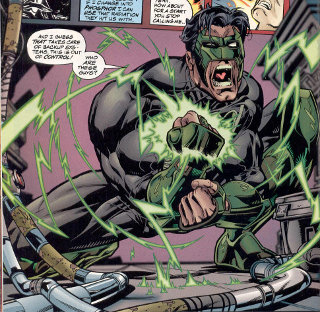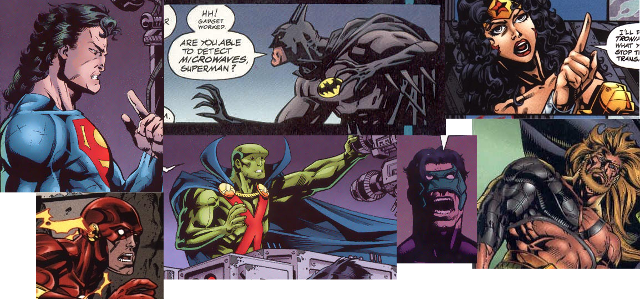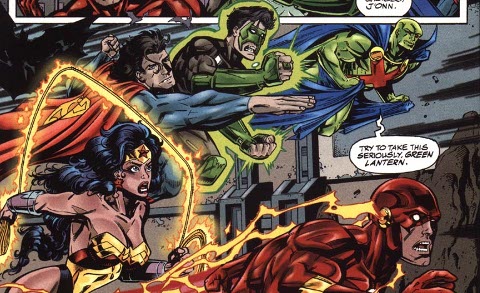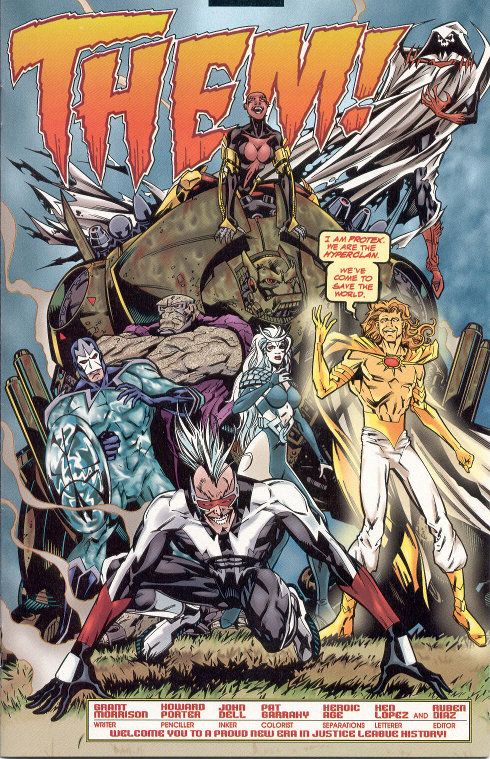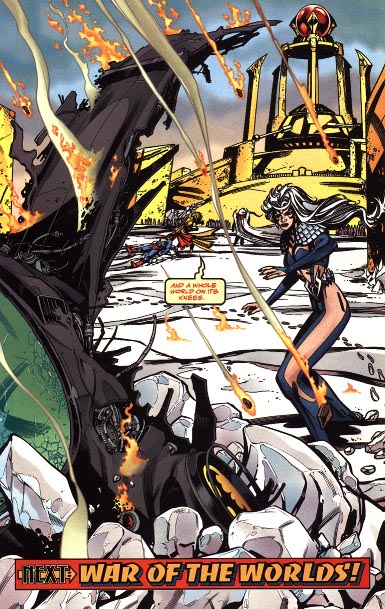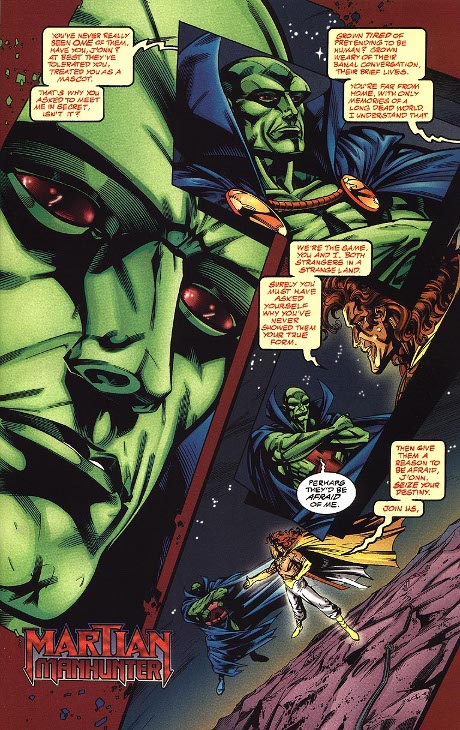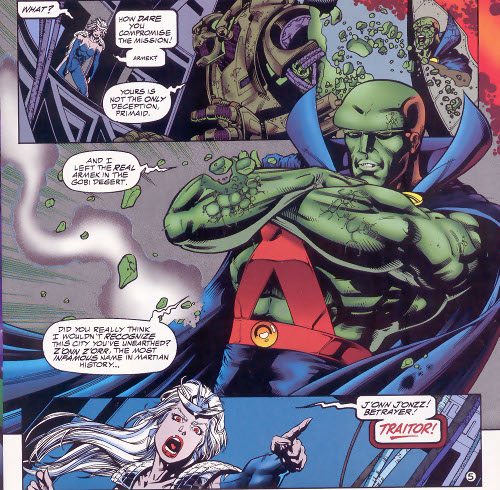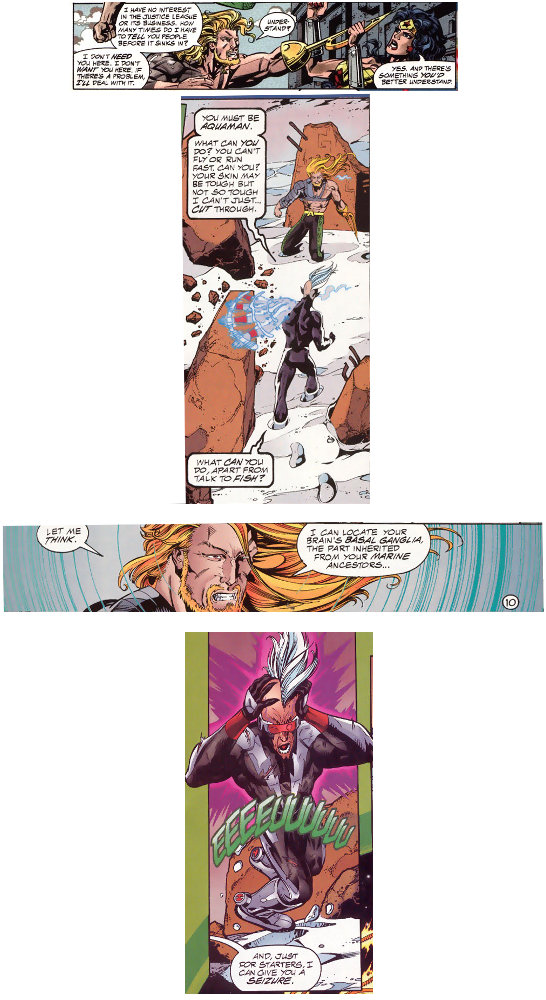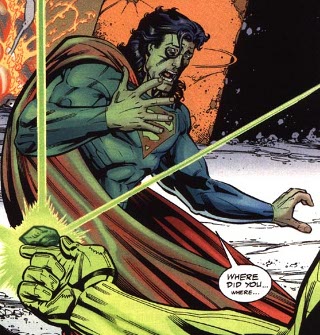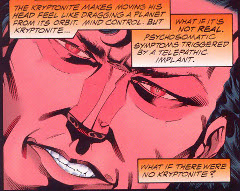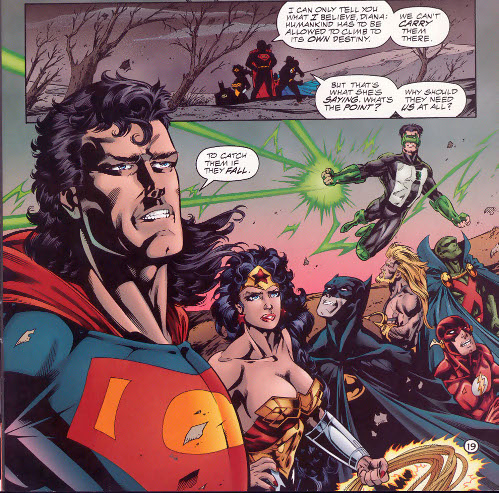A highlight reel from the last couple days on Brontoforumus:
The Tick
(Originally posted yesterday, 2013-05-05.)
The free Tick is pretty great but makes a basic storytelling mistake in not introducing the supporting cast. I know who Tick and Arthur are, but Bumbling Bee and Rubber Ducky aren't referred to by name until pages 12 and 13, and they never say Cod's full name, unless Cod is his full name.
I know there's a general backlash against techniques like the 1960's era of characters all addressing each other by name on the first couple of pages, and the 1990's method of just having each character's name appear in a caption when they first appear, but there are still ways to integrate it organically in the story. Arthur addresses Bumbling Bee as "Bee" several times in the first few pages, and she later tells Cod she wants to "meet up with Ducky". Those could trivially be changed to the characters' full names without seeming out-of-place.
And again, Cod is referred to as "Cod" exactly once in the story, and I assume that's one more shortened name.
For all that it's still a perfectly fun Tick comic. Arthur gets a vacation, Tick gets an undersea adventure, there are hijinx with the other heroes, and eventually Arthur gets to save the day. It's enjoyable. I would buy more Tick comics if they didn't charge seven bucks for 20 pages. And I heartily recommend the Complete Edlund collection, even though it is really pricey for its quality of materials. ($35 for B&W on newsprint -- but you will definitely get $35 worth of enjoyment out of it. I keep meaning to do a full writeup of it.)
The backup stories and prose sections aren't bad either. But given the latter's repeated reference to how this is bound to be some people's first Tick comic and be introducing people to these characters for the first time, it's that much more baffling that they dropped the ball on actually introducing the characters.
Superman
(Originally posted yesterday, 2013-05-05.)
DC, of course, has spent the past two years on a big relaunch, where its continuity is fundamentally changed and all the characters are redesigned.
And so, for the Free Comic Book Day issue of Superman, which is likely the first Superman comic many people have picked up in years, if not ever...
...they reprint the Donner/Johns/Kubert issue from, what, 2006, 2007, that introduces Chris Kent.
Lois still knows Superman is Clark Kent. They're still married. His costume still has red trunks on it. And the story is best-known for the introduction of a character who was written out pretty soon after, who nobody really remembers, and who sure as hell doesn't exist in the New 52.
But we can't have Stephanie Brown appear in Smallville, because that might confuse people.
Star Wars
(Originally posted earlier today, 2013-05-06.)
The Free Comic Book Day issue is pretty much the perfect little Star Wars story: somebody for some reason decides it would be a great idea to fuck with Darth Vader, and then learns that it really isn't after all. Also Boba Fett gets to shoot some dudes.
I think it's Wood's best Star Wars comic yet; all of my complaints about the pacing-for-the-trade present in the main series are gone here, it's over and done in pretty short order.
It's so easy, after the last 4 movies, to think of Vader as a gigantic pussy. This comic doesn't just play him as a stone-cold badass, it actually uses his engineering talent cleverly too (spoiler: as he's crawling around the outside of the ship, his would-be assassin tries to jump into hyperspace -- but Vader's already destroyed the hyperdrive with his light sabre).
Anyway. It's free (though you've gotta sign up for an account); it's well worth reading. It comes with Avatar (the Last Airbender) and Captain Midnight, too; haven't gotten around to reading those yet.
Digital Freebies
(Originally posted earlier today, 2013-05-06.)
Anyhow, for those who missed FCBD, Bleeding Cool has a list of freebies available at Comixology, the Dark Horse store, and elsewhere. No Tick, sadly, but definitely check out Star Wars.
